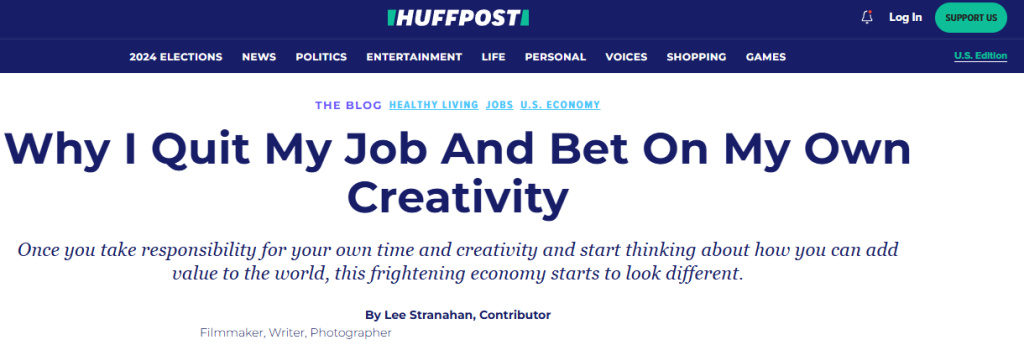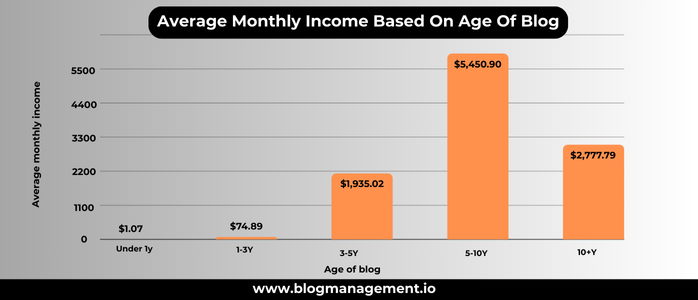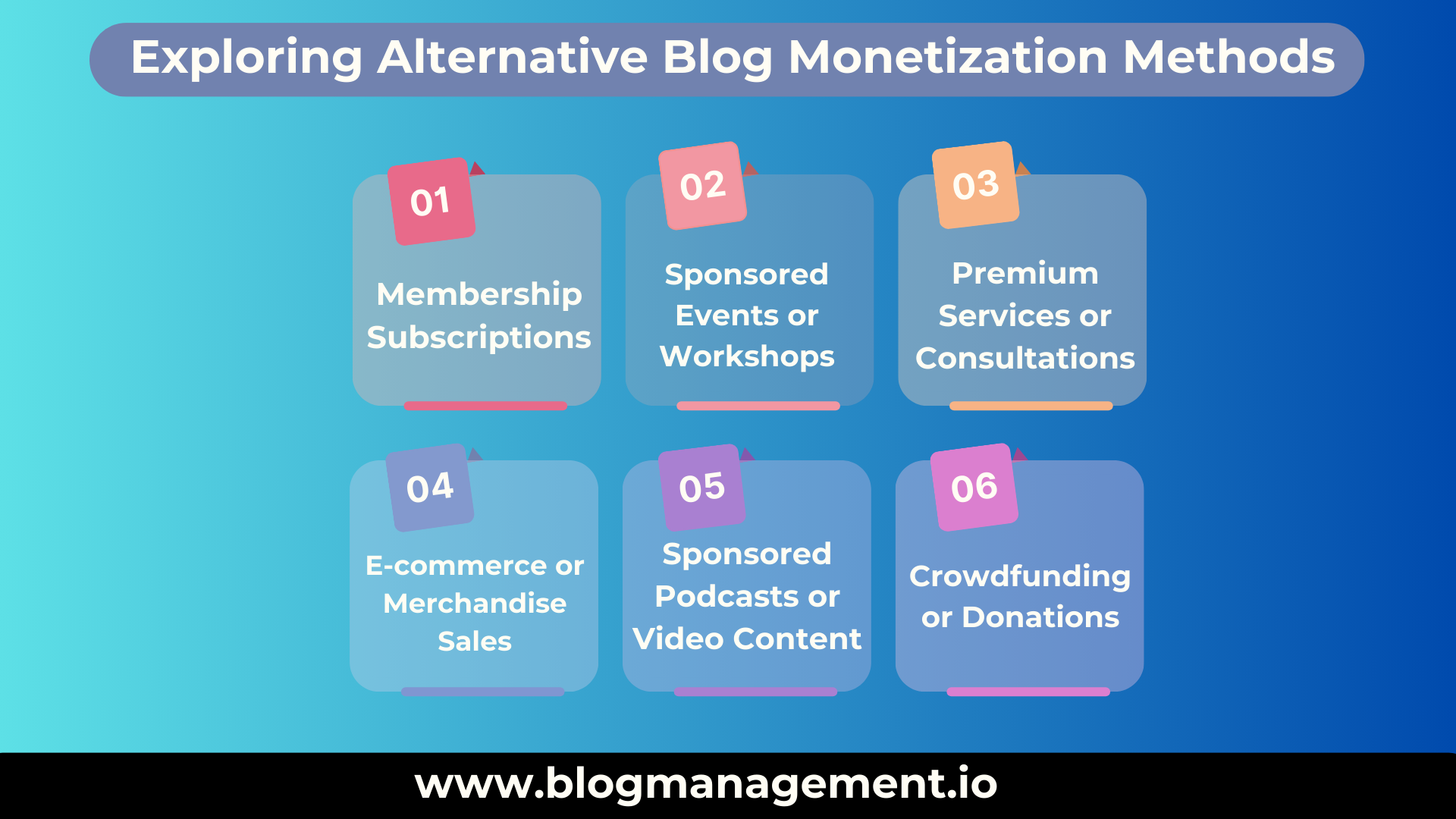Blogging serves as a creative outlet for building relationships with readers who share similar interests.
No matter what inspired you to become a blogger, the right monetization strategy can help you generate revenue through blogs.
The blogging world features unique terms, niches, and strategies. These aspects help bloggers to increase their readership.
For instance, some bloggers write casually. They share their expertise and insights regularly. On the other hand, others, like Neil Patel, take a more calculated approach. Here they strive to grow their audience by establishing themselves as an industry leader.
Every strategy can become your gold mine with consistency and innovation. However, marketers must understand the differences between these strategies to understand how and when to use them.
This article will help all aspiring bloggers understand the differences between two major blogging strategies- sponsored posts and guest posts.
Let’s begin with the basic definitions for both.
What’s A Sponsored Post?

A sponsored blog post is a partnership between a brand and a blogger. This partnership requires a blogger to create content that highlights the brand or its products.
This content can include product reviews, tutorials, how-to guides, and brand mentions.
After agreeing on payment, usually a one-time fee, the brand and blogger choose a topic that fits the brand’s message and the blogger’s audience.
The blogger then writes and promotes the post. This sponsorship benefits brands. It gives them exposure, increases their awareness, and drives traffic and sales.
For bloggers, it offers a chance to earn money. Moreover, when you collaborate with preferred brands it strengthens your authority.
What’s A Guest Post?

Guest blogging is inviting someone to write a blog for your website. This writer typically works in the same industry or has expertise related to your organization.
It’s a good way to collaborate with others in the industry, especially for sales or affiliate marketing strategies.
Hosting guest posts is a fantastic way to make your blog more appealing. These posts help you position yourself as a trusted and knowledgeable resource. Think about industry giants like HubSpot or Search Engine Journal. Brands work hard to get featured on these platforms. It helps them enhance visibility and credibility.
Moreover, when you encourage guest posts, you can find new content from various writers. This helps you keep your blog dynamic and offers fresh viewpoints.
However, there’s a catch. When accepting guest posts, you must ensure that these writeups align with your audience.
Similarities Between Sponsored Posts & Guest Posts
Despite these strategies are different, they have a lot of similarities in their usefulness. As the top two blog monetization strategies, sponsored posts, and guest posts have the following similarities:
1. Both Drive Targeted Traffic To Your Blog
Sponsored and guest posts attract readers already interested in your blog’s subjects. Both formats provide high-quality, targeted content that resonates with your audience.
For instance, if you manage a food blog, a guest post from a nutritionist titled “5 Superfoods for Better Health” will engage readers seeking expert advice.
Likewise, a sponsored post from a kitchenware brand on “Top Cooking Tools for Easy Meal Prep” will also interest your audience. In either case, your blog becomes a reliable source of useful and relevant content.
2. They Enhance Your Blog’s Authority
Both guest posts and sponsored posts can boost your blog’s credibility by linking it to respected voices and brands in your niche.
You can see several lifestyle blogs like The Skinny Confidential, featuring guest posts from established fitness influencers or sponsored content from premium wellness brands. These help them enhance their perceived authority.
These posts also indicate that your blog collaborates with reputable experts or businesses, adding to your blog’s authority.
3. Monetization Opportunities
Sponsored posts generate direct income since you receive payment from the sponsoring brand for publishing their content. Guest posts, typically unpaid, can indirectly yield revenue by attracting partnerships or improving your blog’s SEO, which in turn increases traffic and potential ad revenue.
However, when you get your blog into Blog Management’s database, you can find numerous paid guest posting opportunities from reputed brands and writers from your niche.
4. Shared SEO Benefits
Both guest and sponsored posts can improve your blog’s SEO. They include keywords and external links that enhance your site’s authority and search engine performance.


For instance, Kristin Addis, a popular female travel blogger collaborates with the Nomadic Matt blog site for guest posting. These collaborations bring forth SEO benefits for both parties. It helped Nomadic Matt rank for solo-women-travel-related keywords driving fresh traffic and engagement.
Similarly, the Nomadic Matt blog has a number of collaborations with brands like Intrepid Travel and Booking.com to highlight sustainable travel tours or hotel booking tips. These opportunities help the blog rank for optimized keywords and call-to-action links, driving traffic to their site and the sponsor’s page.
5. Collaboration And Relationship Building
Hosting sponsored or guest posts usually entails collaboration, and fostering long-term partnerships with brands, fellow bloggers, or industry professionals. These connections can lead to future projects and collaborations.
What if your tech blog could feature guest posts from popular figures like MKBHD? These opportunities can lead your blog site to receive proposals for sponsored content from tech startups.
Thus, these relationships developed through guest contributions can evolve into paid sponsorships, benefiting both strategies.
6. Both Require High-Quality, Relevant Content
To engage your audience, both sponsored and guest posts must fit your blog’s niche and uphold the quality your readers anticipate. Irrelevant or excessively promotional content can push away your audience, so creating content that offers real value is essential.
Sponsored v\s Guest Posts: The Revenue Earning Aspect

Comparing the effectiveness of guest and sponsored posts for their revenue-earning capacity is like comparing milk and coffee for who’s the better beverage.
Although you can have both of these drinks as beverages, milk is more importantly an ingredient used to make coffee.
Similarly, guest posts can help you earn revenue, but more importantly, they give your blog site the authority that helps you drive sponsored post requests.
When assessing revenue potential, sponsored posts usually offer significantly greater earning capacity for bloggers. Sponsored posts involve direct compensation from a company to display their product or service.
However, guest posts mainly focus on enhancing authority and visibility through backlinks on other websites. These post requests often come with little or no direct compensation.
Sponsored posts are directly compensated for by the company advertising their product. Guest posts, on the other hand, mainly provide indirect benefits such as improved traffic and backlinks from the hosting website. These SEO aspects have a huge impact on your blog’s monetization capabilities in the future.
For the best use of both these strategies, a blogger must build a strong reputation and backlink profile with high-quality content. Moreover, when you strictly dictate the terms for guest posting on your blog, you get assured quality content with high-ranking backlinks. This can lead to higher fees for sponsored content.
How Are Top Bloggers Exploring Sponsored Posts & Guest Posts?
To help you get a clearer picture of how some of the top blog sites explore guest posting and sponsored post opportunities, we have prepared a chart for you. Here, we have included HubSpot Blog, TechCrunch, and HuffPost for your understanding.
Here’s what the masters are doing:
Here’s an updated table with examples of brands featured in sponsored posts and writers contributing guest posts for each blog:
| Blog Name | Focus Area | Guest Posts | Sponsored Posts | Website |
| HubSpot Blog | Marketing & Sales | Guest Posts: Contributors like Neil Patel share expertise on marketing strategies. | Sponsored Posts: Brands like Canva and SEMrush promote tools for marketers. | hubspot.com |
| TechCrunch | Technology & Startups | Guest Posts: Tech leaders like Marc Andreessen write on emerging technologies. | Sponsored Posts: Companies like Intel and AWS feature product innovations. | techcrunch.com |
| HuffPost | News & Lifestyle | Guest Posts: Thought leaders like Arianna Huffington contribute pieces on wellness and balance. | Sponsored Posts: Brands like Allbirds and Blue Apron advertise lifestyle products. | huffpost.com |
Sponsored Post Best Practices
When accepting sponsored posts on your blog, you must adhere to the following best practices:
- Define your niche and target audience.
- Align the sponsor’s business with your blog’s niche.
- Be transparent about sponsorships.
- Create a media kit with blog statistics and pricing.
- Set reasonable rates according to traffic and engagement.
- Collaborate with fitting brands.
- Produce high-quality content.
- Retain your creative control.
- Monitor performance metrics.
- Follow legal disclosure guidelines.
Moreover, you should be vigilant about excessive product promotion. Being subtle about the promotion, yet informative for your audience, must be the aim for successful sponsored posts.
Guest Post Best Practices
For guest posts, blog owners must divide the process from acceptance to audience engagement. Here are the different stages of guest posting best practices:
Clarifying The Guidelines
- Define specific topics for guest posts.
- Specify post length and writing style.
- State rules for link placement.
- Outline the submission process.
Promoting Opportunities
- Create a “Guest Post Guidelines” page.
- Announce guest post opportunities.
- Seek assistance from blog management platforms.
- Engage in relevant online communities.
Reviewing Contributors’ Quality & Authority
- Check the author’s website and reputation.
- Assess the proposed topic fit.
- Request a writing sample.
- Review drafts for grammar and accuracy.
- Verify data and claims.
- Ensure content originality.
Engaging Audience Post-Publication
- Encourage authors to share posts.
- Respond to comments and questions.
- Monitor guest post-performance.
Additional Earning Avenues For Bloggers

While traditional blog monetization methods like affiliate marketing, display advertising, and selling digital products are effective, using various income streams can increase earnings and provide more stability. Bloggers can explore alternative monetization methods to find new revenue sources and enhance their income potential. Some options include:
- Membership Subscriptions: Create a membership area for premium content where subscribers pay a monthly or annual fee. This fosters loyalty among dedicated readers.
- Sponsored Events or Workshops: Organize events or workshops related to your blog’s niche with brands or experts, charging fees for attendees or securing sponsorship deals.
- Premium Services or Consultations: Offer specialized knowledge through personalized coaching, advice, or professional services, using your blog’s authority to attract clients.
- E-commerce or Merchandise Sales: Sell physical products or merchandise related to your niche, setting up an online store or partnering with e-commerce platforms for sales.
- Sponsored Podcasts or Video Content: Explore sponsorships for podcasts or videos, incorporating brand mentions or ads for additional revenue.
- Crowdfunding or Donations: Set up crowdfunding campaigns or accept donations via platforms like Patreon or Ko-fi, engaging with your audience and highlighting their impact.
By considering these alternative methods, bloggers can diversify their income streams to enhance their earnings and create a sustainable blog. Continuously refining these strategies is essential for maximizing profits.
